The stock market soared in 2019. Not all Miami-area public companies kept up
The longest bull market in recorded history turned a year older in 2019 as stocks soared thanks to strong corporate profits, low unemployment, and low inflation. That kind of rising tide tends to lift most corporate boats. And indeed, many of the large, publicly traded companies that call Miami-Dade and Broward home kept up with the broader market gains.
But not all.
South Florida has long boasted a unique mix of public companies. First among equals are its three marquee cruise industry players: Carnival Corp., Royal Caribbean International and Norwegian Cruise Line Holdings Ltd. The area is also home to the country’s largest homebuilder, Lennar; one of the largest truck fleet companies, Ryder System; one the largest marine and aviation fuel distributors, World Fuel Services; and the largest distributor of heating, ventilation, and air condition supplies, Watsco, Inc. Meanwhile, newer entrants like Chewy an online pet supplier that went public last summer, sit up the road from HEICO, the world’s largest independent supplier of aircraft parts.
And their performance in 2019 was just as varied as the industries they represent. Leading the pack was World Fuel, whose shares more than doubled following a dismal 2018. The biggest laggard proved to be National Beverage Co., maker of La Croix sparkling water, which suffered as new competitors entered the market.
Overall, eight of the 18 publicly traded companies surveyed by the Miami Herald met or exceeded the Standard and Poor’s 500 stock market index’s year-on-year gain of about 33% in 2019.
What follows is an accounting of how shares in companies like these fared in 2019. They are listed in order of market cap size.
Carnival Corp.
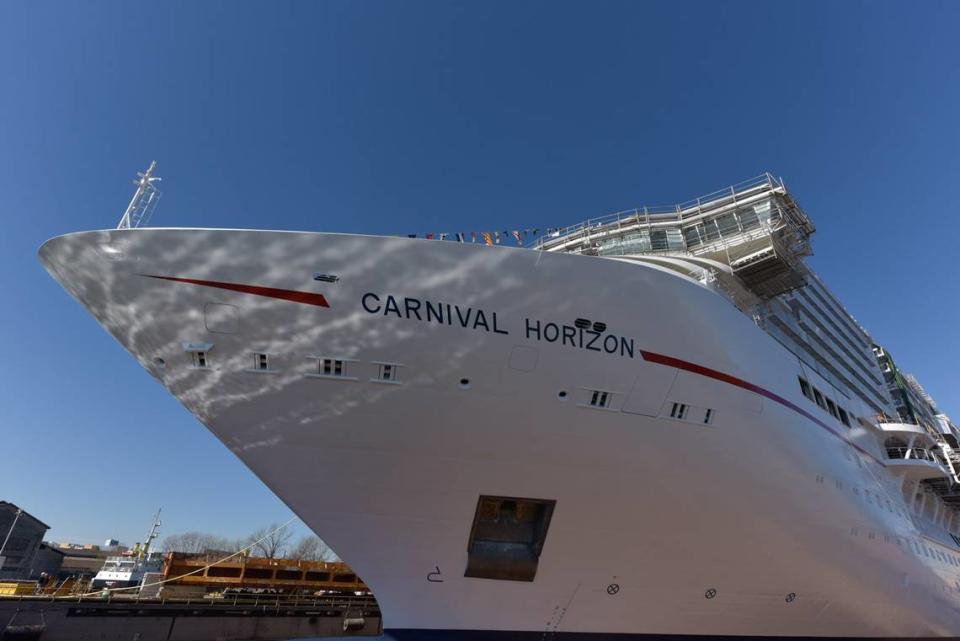
Market cap: $33 billion; headquarters: Miami; ticker: CCL; 2019 performance: +7%; description: cruise line; leadership: Micky Arison (chairman), Arnold Donald (CEO).
The world’s largest cruise company was the laggard among Miami’s big-three in 2019, with shares climbing 7% for the full calendar year. Carnival faced a variety of issues in 2019, including a downgrade from Wall Street firm Nomura. Shares did have a strong fall rally to get out of the red for the year.
Royal Caribbean International
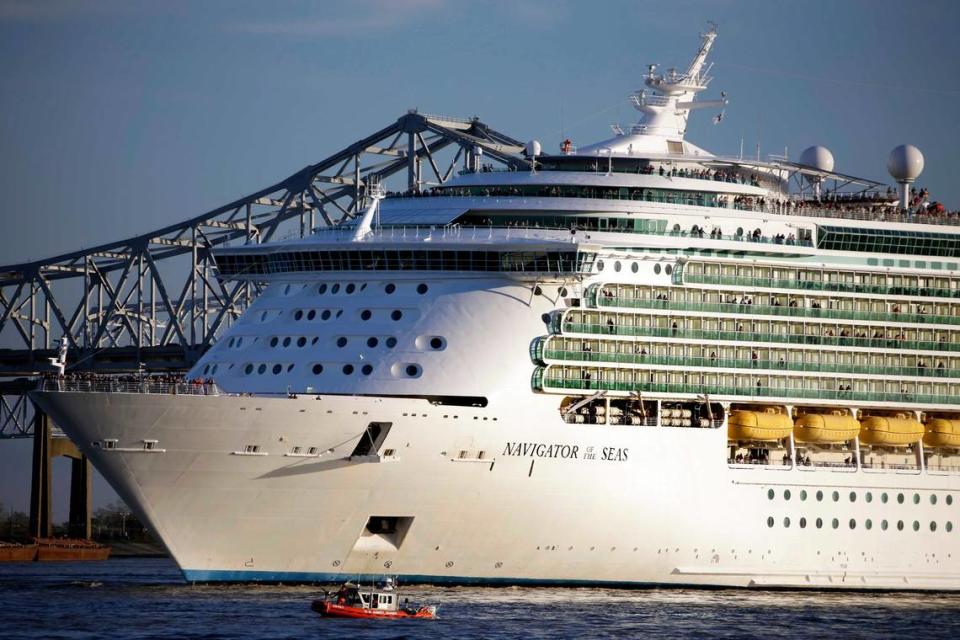
Market cap: $27 billion; headquarters: Miami; ticker: RCL; 2019 performance: +40%; description: cruise line; leadership: Richard Fain (chairman and CEO).
Wall Street viewed Royal Caribbean’s trajectory as slightly stronger than Carnival’s, which is how the 52-year old company saw its shares stay apace with the broader market in 2019. Investors responded to new ship deliveries and destinations by sending shares higher.
Lennar Corp.
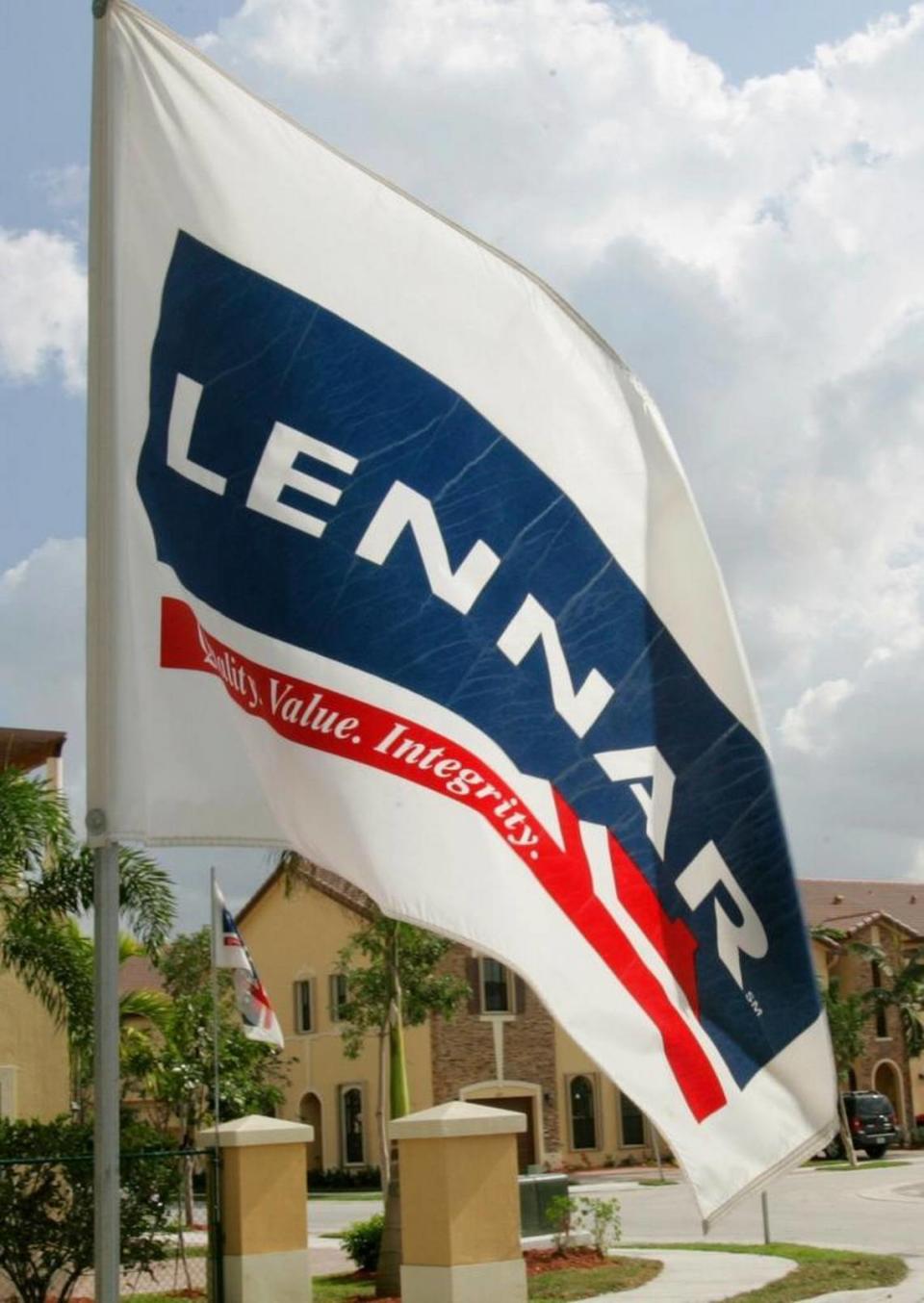
Market cap: $21 billion; headquarters: Miami; ticker: LEN; 2019 performance: +43%; description: homebuilder; leadership: Stuart Miller (chairman), Rick Beckwitt (CEO).
The broader home-construction industry is now seeing some of the strongest post-recession growth in years, and Lennar features prominently in that narrative. In September, Buck Horne, analyst at Raymond James, said that Lennar, along with Toll Brothers and KB Home, was “displaying levels of confidence in current conditions we probably hadn’t seen in a couple of years.”
Citrix Systems
Market cap: $17 billion; headquarters: Fort Lauderdale; ticker: CTXS; 2019 performance: +10%;
description: computer security software; leadership: Bob Calderoni (chairman), David Henshall (CEO).
Shares in Citrix found themselves at the mercy of the news cycle, which produced multiple reports throughout the year that a sale was imminent. No such transaction has materialized so far. While shares ended the year in the black, it underperformed the broader S&P 500 index.
HEICO
Market cap: $14 billion; headquarters: Hollywood; ticker: HEI; 2019 performance: +48%; description: aerospace and electronics firm; leadership: Laurans Mendelson (chairman and CEO).
It was a tale of two halves in 2019 for HEICO, the Broward-based aerospace equipment specialists whose roots stretch back to the 1950s. After reporting “blowout” profits last spring, according to Wall Street firm Canaccord, HEICO shares gave up almost half their gains as traders pulled back on valuations that had begun to climb into the “stratosphere,” according to Credit Suisse.
Today, shares trade at around $121—still near all-time highs.
Norwegian Cruise Line Holdings Ltd.
Market cap: $12 billion; headquarters: Miami; ticker: NCLH; 2019 performance: +38%; description: cruise line; leadership: Russell Galbut (chairman), Frank Del Rio (CEO).
Like Royal, Wall Street sees Norwegian shares as more fairly valued, and its financials stronger, than Carnival’s. “We expect the company’s investment in onboard amenities, new ships, and land-based leisure offerings to continue to generate industry-leading net yield” for shareholders, Nomura analyst Curtis said in a note to investors in November. Norwegian stock now trades at about $58.
Chewy
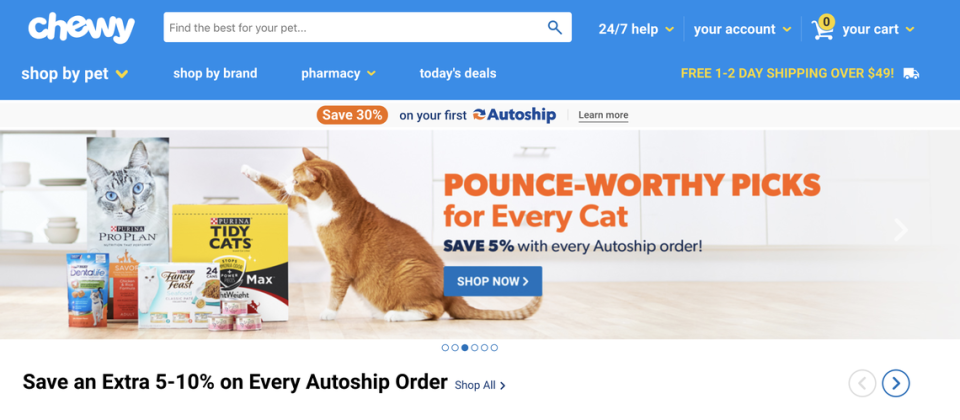
Market cap: $11 billion; headquarters: Dania Beach; ticker: CHWY; 2019 performance: -17%; description: online pet supplies; leadership: Raymond Svider (chairman), Sumit Singh (CEO).
Chewy kicked off its tenure as a public company on June 14 and has yet to recover to its IPO price of $36. Some on Wall Street remain unconvinced that a stand-alone online pet supplies store can outcompete the likes of Walmart and Amazon. Greenlight Capital founder David Einhorn is among the most outspoken skeptics, having compared the company to famed dot-com bust Pets.com. Others remain cautiously optimistic: Strategas Securities analyst Todd Sohn said Chewy, along with other buzzy names like Uber that went public in 2019 but whose shares subsequently sank, may now be “bottoming out” thanks to broad consumer strength.
Ultimate Software*
*Market cap: sold in April for $11 billion; headquarters: Weston; *ticker: n/a; *2019 performance: n/a; description: Human resources software; leadership: Adam Rogers (CEO).
Ultimate Software’s sale to a private equity group in April represented a watershed moment in the history of Miami tech as one of the region’s first and most successful startups ended its tenure as a publicly traded company. In November, company founder and former CEO Scott Scherr announced he would be retiring, while former co-CEO Adam Rogers was promoted to full-time CEO. Ultimate plans to maintain much of its Weston-based staff — and will continue to serve as jersey sponsor for the Miami Heat.
Watsco Inc.
Market cap: $7 billion; headquarters: Coconut Grove; ticker: WSO; 2019 performance: +35%; description: HVAC equipment supplier; leadership: Albert Nahmad (chairman and CEO).
Watsco had a relatively quiet year in 2019, essentially matching the broader performance of the S&P 500. It continued to invest in both e-commerce and geographic market expansions, notably closing an acquisition of a supplier in New York.
MasTec
Market cap: $5 billion; headquarters: Coral Gables; ticker: MTZ; 2019 performance: +58%; description: infrastructure construction; leadership: Jorge Mas (chairman), José Mas (CEO).
MasTec provided investors with consistent gains throughout 2019, including an August earnings release that sent shares soaring 13%. The ongoing rollout of 5G wireless communication technology will prove to be a further boon to the company’s bottom line, CEO José Mas said on the company’s most recent earnings call.
“The CEO of Verizon recently said that 5G technology is ultimately one of the most important infrastructures for the 21st century,” Mas said. “We are entering one of the most exciting periods in the history of telecommunications. The deployment of 5G wireless technologies is truly a game changer for the consumer, our customers and for MasTec. The expected 5G CapEx budgets and length of the spending cycle are both unprecedented.”
AutoNation
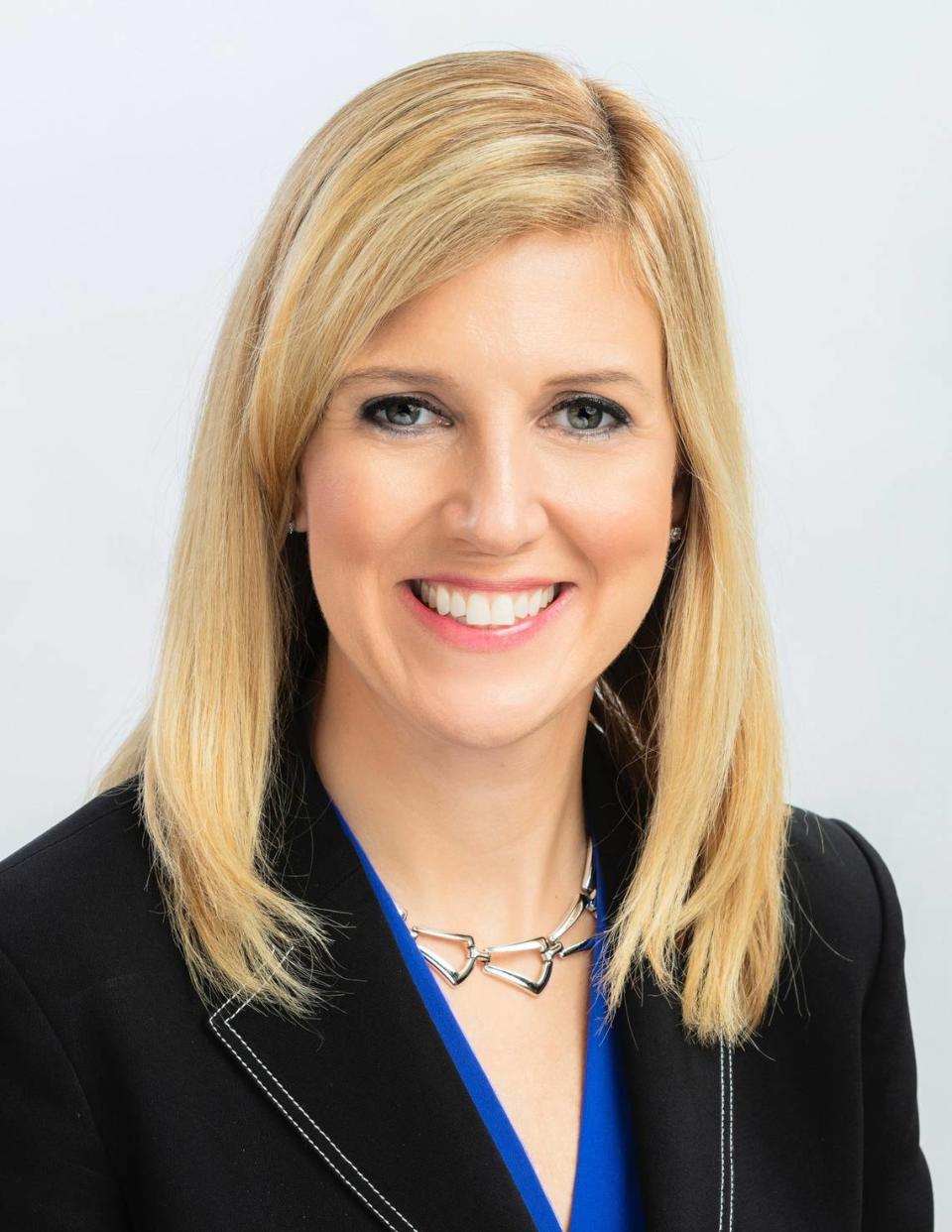
Market cap: $4 billion; headquarters: Fort Lauderdale; ticker: AN; 2019 performance: +36%;
description: car dealer network; leadership: Mike Jackson (chairman), Cheryl Miller (CEO).
AutoNation shares weathered a tumultuous year that saw the company overseen by three consecutive CEOs in the span of a few months. Strong consumer spending allowed lead shares to float up alongside the gains seen in the broader market.
BankUnited
Market cap: $3 billion; headquarters: Miami Lakes; ticker: BKU; 2019 performance: +25%; description: financial institution; leadership: Rajinder Singh (chairman and CEO).
BankUnited posted solid financials in second half of 2019, but was not able to overcome a broader weakness among U.S. banks, as shares sunk during the first part of the year. A share buy-back program did allow the stock to end the year in net-positive territory for 2019.
Spirit Airlines
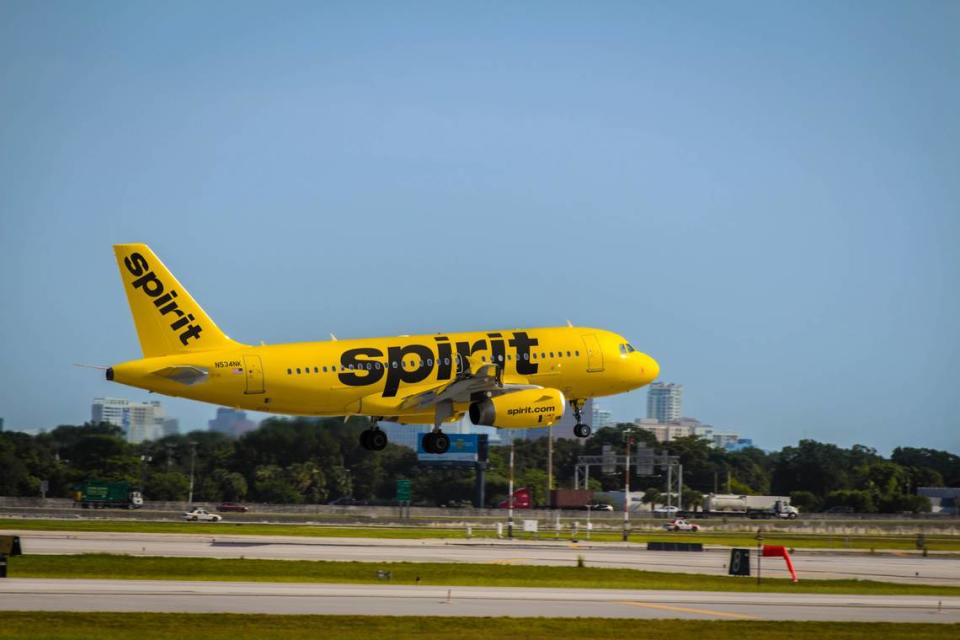
Market cap: $3 billion; location: Dania Beach; ticker: SAVE; 2019 performance: -30%; leadership: Mac Gardner (chairman), Ted Christie III (CEO).
2019 was a brutal year for many airline-industry firms, and Spirit could not escape the broader negative momentum in the sector despite its unique business model. The company still has plenty of believers, though, including former hedge fund manager Whitney Tilson, who observed in a recent note to clients that Spirit has been able to consistently bounce back after its stock has lost ground.
Ryder System, Inc.
Market cap: $3 billion; location: Miami; ticker: R; 2019 performance: +17%; leadership: Robert Sanchez (chairman and CEO).
Ryder is working to upgrade its fleet management technology, and it has introduced new platforms and products to meet the needs of 21st-century customers. But in some cases, this was not enough to counteract weakness in legacy businesses, causing shares to underperform the broader market. Still, the stock ended the year in net-positive territory.
World Fuel Services Corp.
Market cap: $3 billion; location: Doral; ticker: INT; 2019 performance: +105%; leadership: Michael Kasbar (chairman and CEO).
When oil prices, and oil demand, are high, World Fuel’s shares go up; when prices and demand are not high, the company’s shares go down. And last year, strong demand and pricing tied to steady global economic growth helped World Fuel shares to more than double.
National Beverage Corp.
Market cap: $2 billion; location: Fort Lauderdale; ticker: FIZZ; 2019 performance: -29%; leadership: Nick Caporella (chairman and CEO).
America’s love affair with La Croix seltzer water appeared to fizzle last year, as fizzy competitors including Pepsi Co.’s Bubly and Canada-based White Claw emerged. “LaCroix will not stabilize until at least next year given the increased competition and the lack of meaningful innovation to generate buzz,” analyst Laurent Grandet of financial group Guggenheim Partners said in a November note to investors.
Stock performance information via StockCharts.com; market cap via Google Finance
This post originally mis-stated Bubly’s corporate owner.

